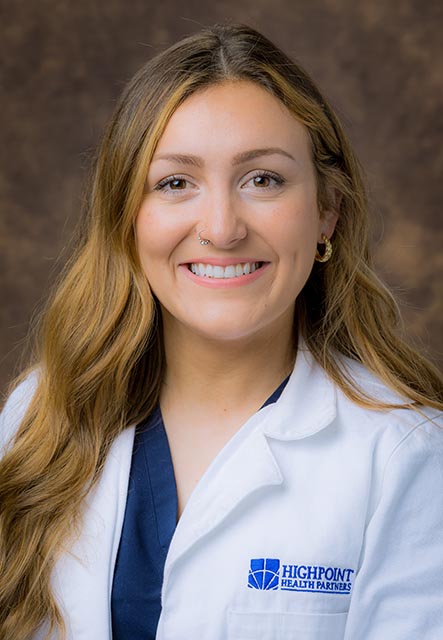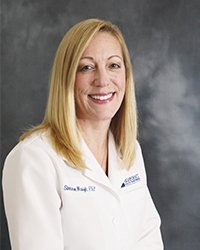Stroke Care

Certified Stroke Care in Sumner County
Are you experiencing stroke symptoms? Call 9-1-1 immediately!
Highpoint Health – Sumner with Ascension Saint Thomas is a Primary Stroke Center (PSC) serving Sumner County and surrounding areas. Our goal is to provide the highest quality stroke care so you can get back to your life as quickly and fully as possible. Part of that care is educating our community on preventable risk factors and how to recognize the symptoms of a stroke. Because time is brain. The sooner you can get to a hospital if you are experiencing stroke symptoms, the better your chance of survival and a full recovery.
Resources
Learn Your Risk Factors
Learn about the different types of strokes, symptoms and risk factors.
Stroke Rehabilitation
Often, rehabilitation after a stroke is needed to regain skills that are lost when a part of the brain is damaged.
A Stroke is an Emergency
Time is brain. If you are having symptoms of a stroke, seek medical care immediately. Call 9-1-1.
Our Stroke Care Experts
Services We Offer
As Primary Stroke Center, we offer emergency care, 24/7 imaging, and round-the-clock neurology coverage with our neurohospitalists and teleneurology. We also administer Thrombolytics, a.k.a. the "clot-buster drug."
The ER Experience
Things move fast in the ED because “time equals brain” in acute (sudden onset) stroke. Time is of great importance in the ED during a stroke. The activity may seem chaotic, but there is a purpose for every action. Blood tests, heart monitoring, X-rays and a CT exam will happen very quickly. The key question for your family will be the “time of last known normal.” This is very important, as it helps determine the type of treatment for the stroke patient.
Other conditions with similar symptoms to stroke and TIA will need to be ruled out to diagnose stroke. Some of these include seizures, fainting, low blood sugar, migraine headaches, heart problems, or other general medical conditions. The type of stroke must also be determined. Treatment for each type of stroke is unique.
You will be asked:
- About your medical history
- The last time you were seen well, without symptoms
- When the onset of symptoms occurred
- The last time you took anticoagulant medications (blood thinners), if any, and the name of the medication
- To undergo a neurological exam which may include a physical exam by an ED physician and/or a neurologist (either in person or by teleconsult)
Imaging
There are many types of imaging you may receive. Here are some of the more common scenarios:
- CT scan to rule out bleeding in the brain
- CT Angiogram to rule out occlusions in the vessels in your brain
- EKG to look for irregular heart rhythms
- Other tests you may have during your hospital stay for an acute stroke work-up may include: EEG, Echo, MRI, TTE, carotid ultrasound, bilateral lower extremity ultrasound, and lab/blood tests
Thrombolytics
Thrombolytic medications (also called clot busters) work by dissolving blood clots that are blocking the blood flow to the brain. This treatment may be used for a person who is having a stroke caused by clots that block blood flow to the brain (ischemic stroke). These medications can only be given within 4.5 hours of the onset of stroke symptoms.
Neurology Care
We offer inpatient neurology care through our neurohospitalists, hospitalists, and an agreement with Vanderbilt University Medical Center for teleneurology services.





